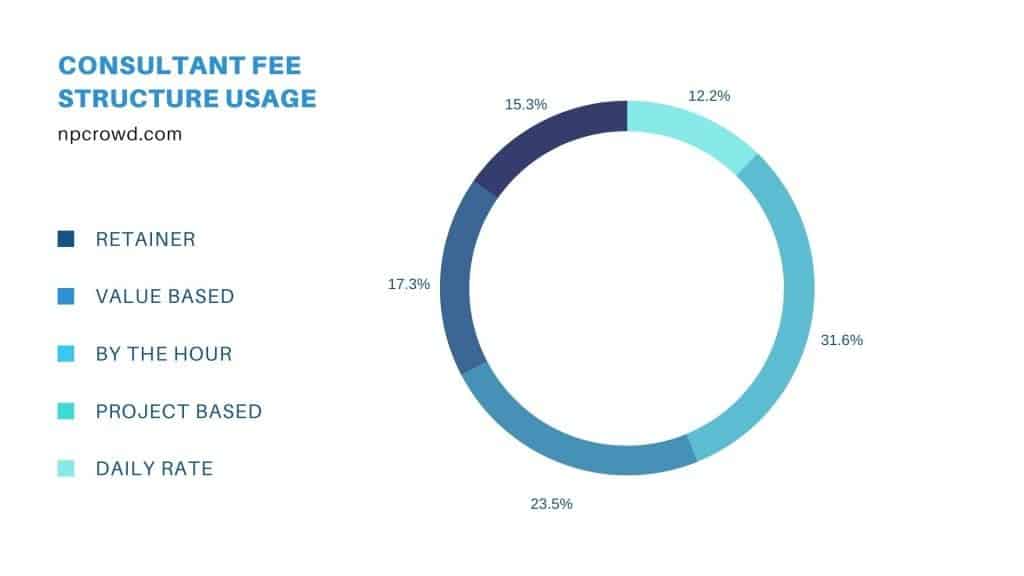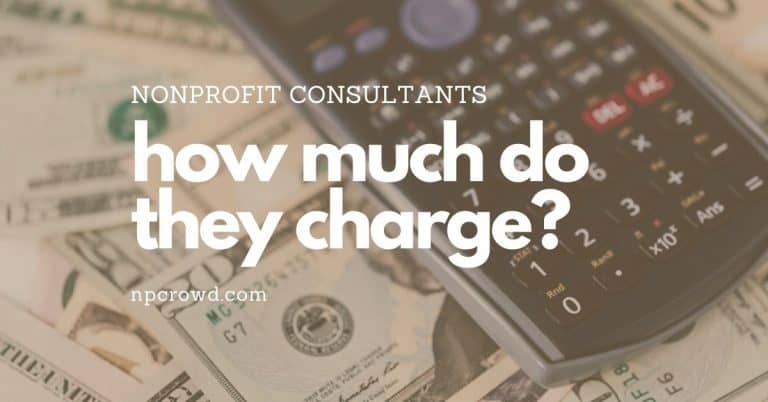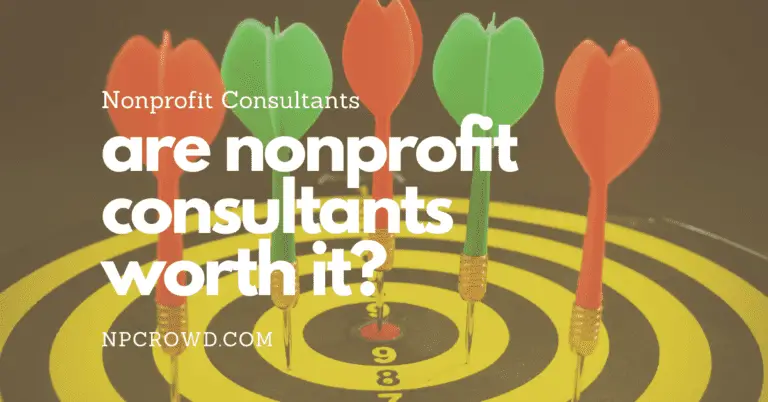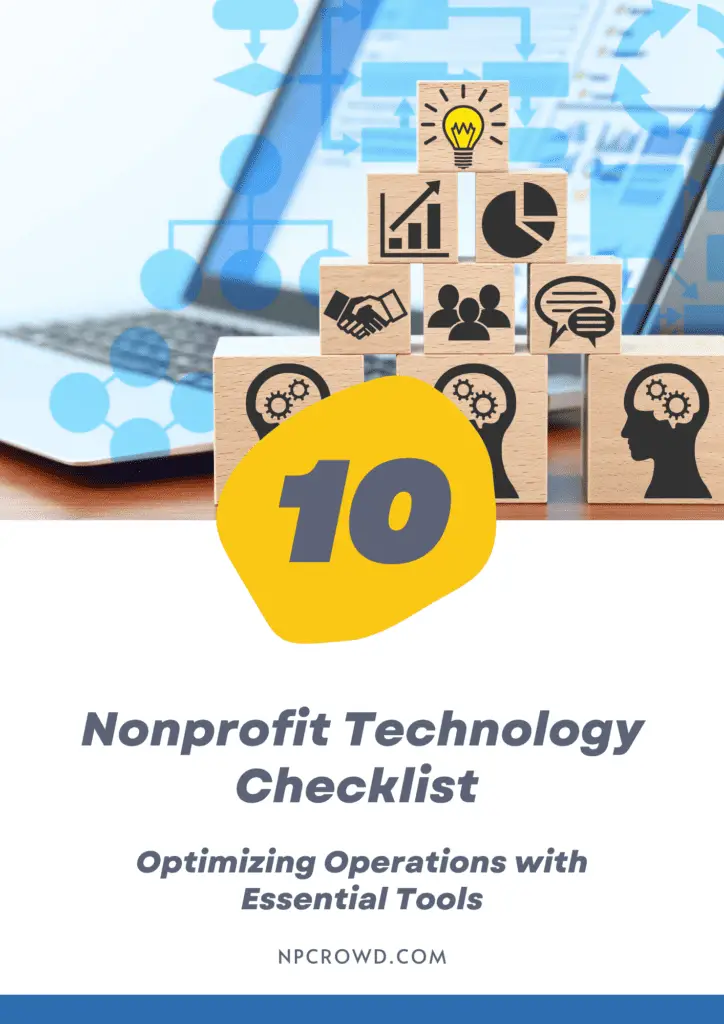Before You Hire A Nonprofit Consultant – Top 6 Fee Structures To Know
Disclaimer: This post may contain affiliate links. These links, if used and purchases made, we may earn a small commission. These affiliate programs do not impact the recommendations we make or the resources we refer you to. Our focus is on providing you the best resources for your nonprofit journey.
Engaging with a quality nonprofit business consultant is extremely rewarding. In most cases, this ends up being a win-win situation. The consultant gets to do what they love, are compensated for it and you get significant value infused into your nonprofit organization in a rapid, effective manner.Before the win-win can take place, the details of the engagement need to be defined. One important part is the nonprofit consulting fee structure. We will introduce 6 structures for nonprofit consultant fees and then go into more detail in an upcoming article.
The most common nonprofit consulting fee structures are:
- Hourly/Daily Rate
- Project-Based / Fixed Price
- Values-Based
- Performance-Based
- Retainer
- Subscriptions
Let’s briefly look at each type of fee structure so that you are able to find the best one for your organization when working with the next consultant.

Hourly/Daily Rate
We’ve all seen the hourly or daily rate structure. The consultant has a fixed rate per hour or per day that is charged. You can use as much or as little as you need, but this fee structure has some pros and cons that will need to be weighed. Also, keep in mind that the consultant only has so many hours available in a given day/week. It is certainly still important that everyone knows the goals of the engagement, so don’t let that slip.
Project-Based
This fee structure is sometimes called Fixed Bid or Fixed Pricing. The idea here is that you’ve provided detailed information describing all of the deliverables and timeframes for the project. This is not a quick phone call. You need to do your homework upfront.
Based on what you are requesting, the consultant estimates a total project cost and timeline. This means you know what it will cost, all-in. The consultant is going to build in their profit margin and some extra time into the costs. The incentive for the consultant is to deliver exactly what you want within the smallest number of hours which increases their profit. At the same time, if they under-estimated, your costs are, theoretically, fixed while the consultant still needs to deliver on the project.
Value-Based
Value-based pricing can take a number of forms. Essentially this fee structure ensures the amount you pay the consultant is commensurate with the value of the solutions they provide. The value of the solutions provided is determined upfront in order to drive the ROI discussion. The ROI then drives the nonprofit consultant fees charged to provide the solutions. i.e. $1,000,000 in delivered value might well justify a $70,000 consulting fee.
Performance-Based
Performance-based pricing can be used in situations where there is a need to move quickly or accurately. In this structure, the nonprofit consultant fees paid are incentivized with larger payouts for early delivery or beating an accuracy goal or some other measurable goal.
Pick a set of goals that drive value. If the consultant can exceed those goals, they get a bigger payout. If they fall below the goals, the payout lessens. This is a “skin in the game” type approach that can be very beneficial at times.
Retainer
Retainers are more typical in legal representation scenarios but have been known to show up with other professional consulting engagements. A client pays the consultant a retainer upfront which secures the consultant for future work. The retainer is typically kept in a special account. When the consultant performs work, the charges are taken out of the retainer first. If the consultant’s charges are more than the retainer, you pay the additional at the time the services are rendered. Think about it somewhat similar to escrow dollars when buying a house, although this is an oversimplification.
Subscriptions
Yes, nonprofit consultants and service providers do engage with clients via a subscription model. Typically this will be for more commodity or advisory type services. In these cases, clients who subscribe will get an allotment of time from the consultant for expertise from a menu of skill areas. This model is even making its way into digital marketing outside of the agency model.
Wrap Up
As you engage with nonprofit service providers and consultants, it will pay dividends for both parties to be familiar with the various fee structures. This knowledge allows you to be creative to find hybrid approaches that benefit everyone. Remember, most nonprofit consultants are not trying to take away your donor dollars unscrupulously. In fact, most find joy in helping you grow your impact.
Great partners need to be properly rewarded and their skills, knowledge, and expertise are worth paying well. Play the long game and build a stable of go-to consultants. They’ll make you better at what you do and provide great value in doing it.
Don’t forget to check out our review of nonprofit consultant fees and charges so that you can begin planning a budget for a consultant engagement.
Additional Reading
- The Nonprofit Times – Don’t pay a consultant a percentage
- Averill Solutions – Fundraising Consultant Fees
- Foundr – How much should I charge as a consultant?
- Maryland Nonprofits – Can my nonprofit pay a fundraising consultant a percentage of what they bring in?
- Philanthropy News Digest – How can I become a nonprofit fundraising consultant?







